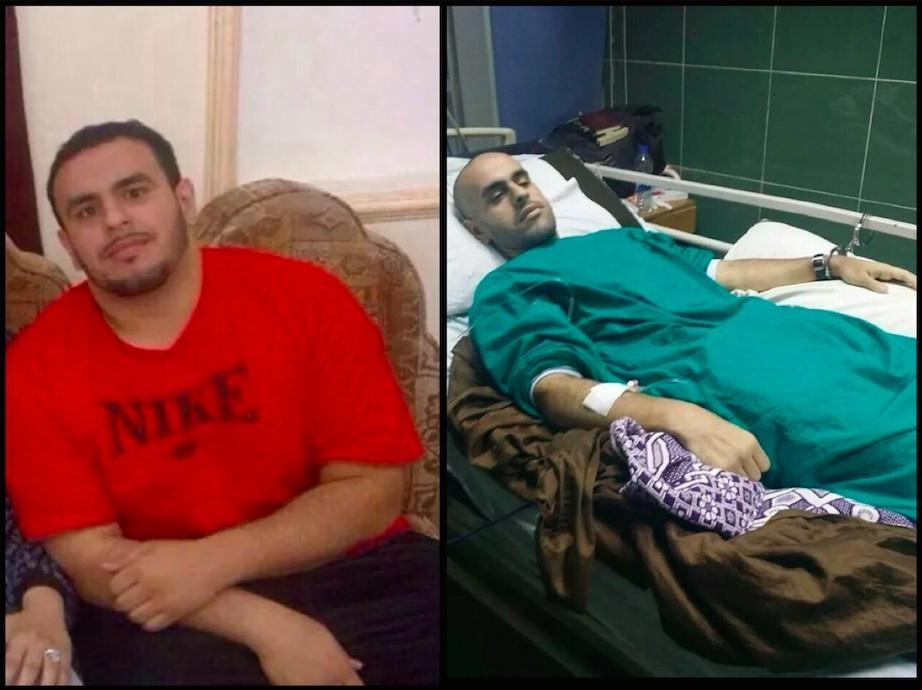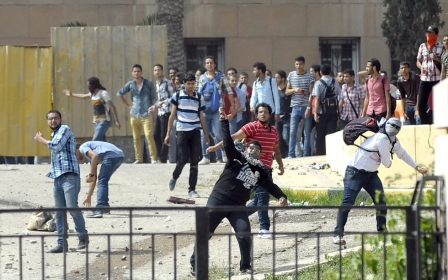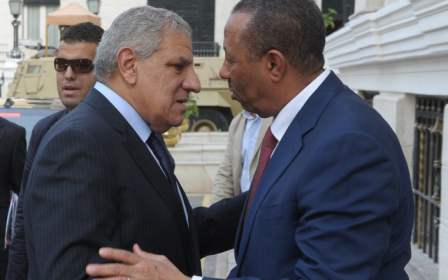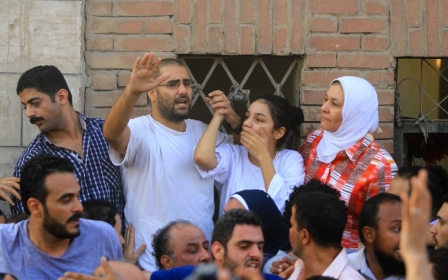Mohamed Soltan case adjourned in Egypt as his health deteriorates

A group of detained Egyptian activists appeared in court on Saturday, accused of violating a controversial law outlawing protests not authorised by the government.
The 23 activists appeared in the Cairo courtroom for a case known as "Rabaa Operations Room", which has now been postponed until 15 October to allow for the prosecution to prepare video evidence.
Mohamed Soltan, 26, was among the 23 activists who were expected in court. He is an American citizen of Egyptian origin and has been on hunger strike for some 259 days.
Soltan is said to be in a critical condition. A photo circulated on Twitter before his court appearance showed him handcuffed to a bed and having lost a significant amount of weight.
Soltan was arrested on 25 August in Cairo last year and is accused of spreading “false information” about the Rabaa al-Adawiya sit-in, which saw at least 817 protesters intentionally killed by Egyptian forces according to Human Rights Watch.
His father Salah Soltan is a well-known Islamic scholar and leader of the now banned Muslim Brotherhood.
Soltan’s health is failing but he will not end his hunger strike, according to his sister Hanaa.
“Unfortunately there is no telling how much longer Soltan’s body will keep going, but he’s determined not to break the strike,” she told Al-Jazeera last month. “It’s the only means he has to protest the injustice he has been facing for the past thirteen months.”
A statement released on Friday by the family said they hold the Egyptian Ministry of Interior and US embassy responsible for Soltan’s life – he was transferred to hospital on 7 October after suffering from internal bleeding.
“The doctors told him if you die here, we’ll write that it was suicide,” the family said in the statement.
At his last two hearings, the US consul to Egypt was refused entry to the court, and Soltan has had to be ferried to his last four court appearances in an ambulance.
A video message by Soltan was smuggled out of prison in May. In it he pleaded with Barack Obama to intervene in his case and said he had gone on hunger strike because of what he had learnt growing up in the US.
“I chose to start a hunger strike…because I was brought up a free man,” he said. “My decision was to peacefully challenge and resist oppression and tyranny. That even if the Egyptian military is able to jail me, and my government insists on abandoning me, I still control my own destiny. That to me is being free.”
“If I’m still alive then I ask my government, the United States of America government: is my life not worth anything to you?”
Others due in court on Saturday include 20-year-old Sana Seif, sister of the recently released activist Alaa Abdel Fattah.
Seif has been on hunger strike for 44 days, in a bid to pressure the Egyptian government into releasing political prisoners. Hundreds of other prisoners across Egypt are reported as having joined a mass hunger strike to protest their continued imprisonment.
Her brother Abdel Fattah, a well-known blogger and activist, is currently on bail awaiting a retrial on charges of violating the protest ban.
Egyptian monitoring group Wikithawra has reported more than 41,000 people have been jailed for politically motivated reasons since a popularly backed military coup last year ousted elected Muslim Brotherhood leader Mohammed Morsi as president.
Middle East Eye propose une couverture et une analyse indépendantes et incomparables du Moyen-Orient, de l’Afrique du Nord et d’autres régions du monde. Pour en savoir plus sur la reprise de ce contenu et les frais qui s’appliquent, veuillez remplir ce formulaire [en anglais]. Pour en savoir plus sur MEE, cliquez ici [en anglais].




